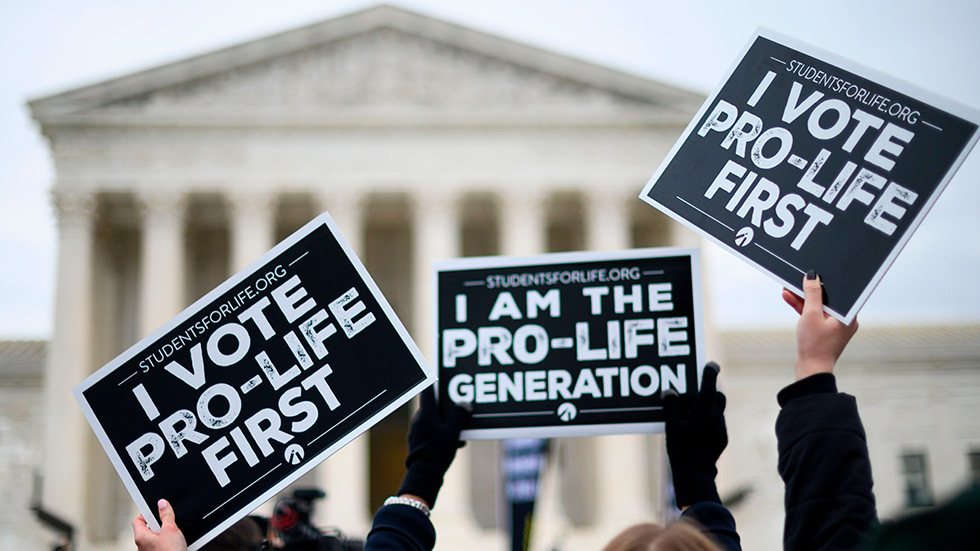Overnight Health Care — Presented by Rare Access Action Project — Advocates push Congress to boost pandemic preparedness funds

Welcome to Thursday’s Overnight Health Care, where we’re following the latest moves on policy and news affecting your health. Subscribe here: digital-stage.thehill.com/newsletter-signup.
During congressional recess, an important look at the “most exclusive committee in Congress,” ready to debate the important pawlitics of the day.
Experts think President Biden’s social spending plan doesn’t do nearly enough to help the U.S. prepare for the next pandemic.
For The Hill, we’re Peter Sullivan (psullivan@digital-stage.thehill.com), Nathaniel Weixel (nweixel@digital-stage.thehill.com) and Justine Coleman (jcoleman@digital-stage.thehill.com). Write to us with tips and feedback, and follow us on Twitter: @PeterSullivan4, @NateWeixel and @JustineColeman8.
Let’s get started.
Critics: Congress falls short on pandemic preparedness

Advocates are pushing Congress to provide more funding to prepare for future pandemics after preparedness money in President Biden‘s $1.75 trillion social spending and climate package was scaled back.
The White House initially proposed $30 billion for pandemic preparedness in Biden’s Build Back Better package. In September, it lowered its proposal to a $15 billion down payment, with the goal of spending $65 billion over seven to 10 years.
The breakdown: The roughly $10 billion in the package includes $7 billion in broader public health funding to help state and local health departments and the Centers for Disease Control and Prevention (CDC) with tasks like updating outdated IT systems and hiring more workers.
Some groups say the remaining $3 billion, for areas like upgrading labs and directly working on vaccines and treatments for different types of viruses, is particularly meager.
That $3 billion includes $1.3 billion that can go toward the Biomedical Advanced Research and Development Authority (BARDA), an arm of the Department of Health and Human Services that helps lead work on vaccines, tests and treatments.
Anita Cicero, deputy director of the Johns Hopkins Center for Health Security, said that $1.3 billion “really has shortchanged that necessary investment.”
Amnesia?: Rep. Ritchie Torres (D-N.Y.) said part of the problem is there is not as much organized advocacy for pandemic preparedness funding as there is for other issues, saying it is not as “sexy” as issues like climate change.
He is pushing for more funding particularly for BARDA.
“Congress might be suffering from amnesia about the worst of COVID-19,” he said, adding: “A few billion dollars is a pitiful response to the worst pandemic in the history of the United States.”
A MESSAGE FROM RAAP
The End of Innovation:

Treatments and cures for rare disease patients are under threat from Congress. Find out more at RareAccessActionProject.org.
Abortion rights advocates call on judge to declare Texas law unconstitutional

Abortion rights advocates on Wednesday pressed a state district judge to declare Texas’s controversial abortion ban unconstitutional, contending that the provision allowing private citizens to sue individuals who violate the law creates a number of legal problems.
A coalition of abortion rights individuals and groups, including Planned Parenthood, is suing the anti-abortion group Texas Right to Life in an effort to stop the group from suing individuals under the new law.
An attorney representing abortion rights groups said her clients have been forced to change the way they act because of the financial burden the new law has hoisted on them.
“Our clients’ interest is being affected right now, they are having to change their behavior because SB8 unconstitutionally exposes them to financial ruin,” Elizabeth Myers said, according to The Dallas Morning News.
Lawyers for Texas Right to Life, however, reportedly argued on Wednesday that the group should not be the target of the litigation because it has not committed any wrongdoing.
Flashback: The Texas law that went into effect in September bans abortions as soon as a fetal heartbeat is detected – earlier than many women know they are pregnant. The law allows private citizens to take legal action against anyone who is believed to be violating the abortion restrictions, providing awards of at least $10,000 for successful lawsuits.
MORE THAN 2 MILLION AT-HOME COVID-19 TEST KITS RECALLED
Australian manufacturer Ellume is recalling about 2 million at-home COVID-19 test kits over concerns about “higher than acceptable” false positives.
The company first initiated the recall in October for a few thousand kits, but this week it was expanded, the Food and Drug Administration (FDA) said Wednesday.
The agency identified the recall as Class I, or the most serious type, and said use of the tests “may cause serious adverse health consequences or death.”
The defective tests were manufactured by Ellume between Feb. 24 and Aug. 11 of this year. There have been 35 reports of false positive results sent to the FDA and no deaths reported.
Affected tests purchased by consumers but not yet used will be disabled via a software update, FDA said. Ellume will also inform customers who used an affected test and received a positive result.
The reliability of negative results has not been impacted.
Context: Earlier this year, the Biden administration inked a nearly $232 million deal with Ellume for the mass production of rapid COVID-19 tests to boost capacity on the U.S. market. As part of the deal, the administration helped fund the opening of the company’s first plant in the U.S.
COLORADO PERMITS ALL ADULTS GET BOOSTERS
Colorado Gov. Jared Polis (D) has signed an executive order allowing any state resident 18 or older to get COVID-19 vaccine booster shots.
The order, enacted on Thursday, will require vaccine providers to administer shots to any adult who received their Pfizer or Moderna shots six months prior, or two months prior for those who got a single Johnson & Johnson shot.
The move to expand booster access comes as Colorado deals with a COVID-19 wave that’s straining hospitals. Colorado announced Tuesday that it was implementing crisis standards of care in its health care system, as almost 40 percent of hospitals expect shortages within the next week.
According to data from Colorado Hospital Association, roughly 720 beds are left in intensive care and acute care units due to the delta variant surge and hospital staffing shortages.
Federal recommendations: Nationally, only all Johnson & Johnson recipients are eligible to receive booster shots two months after the initial vaccination.
But the federal booster recommendations for Pfizer-BioNTech and Moderna recipients were limited to those aged 65 or older, in long-term care facilities, with certain medical conditions or at high risk due to their jobs or living situation.
A MESSAGE FROM RAAP
The End of Innovation:

Treatments and cures for rare disease patients are under threat from Congress. Find out more at RareAccessActionProject.org.
Judge knocks Abbott’s school mask mandate ban

A federal judge ruled late Wednesday that Texas Gov. Greg Abbott’s (R) ban on mask mandates in schools violated the Americans with Disabilities Act (ADA), a decision that Texas’s attorney general quickly pledged to challenge.
The decision could have national implications, as several other states are also in the middle of legal battles over whether masks in schools can be banned.
U.S. District Judge Lee Yeakel sided with the defendants’ argument that masking would help lower the likelihood of disabled students, who are particularly at risk, catching the coronavirus and facilitate their safe in-person learning.
But because the executive order “precludes mask requirements in schools, Plaintiffs are either forced out of in-person learning altogether or must take on unnecessarily greater health and safety risks than their nondisabled peers,” Yeakel wrote.
The advocacy group Disability Rights Texas challenged Abbott’s ban in August, arguing the ban discriminated against students with disabilities by forcing them to choose to be in school with a greater risk of exposure to COVID-19, or stay home. Many of the students named as plaintiffs had underlying health conditions that put them at risk of developing severe illness or even dying if they were infected.
Yeakel, an appointee of former President George W. Bush, in his ruling noted that more than 210,000 students in Texas have tested positive for COVID between the beginning of this school year and Oct. 31.
Texas response: Attorney General Ken Paxton (R) vowed to fight on.
“I strongly disagree with Judge Yeakel’s opinion barring my office from giving effect to [the executive order], which prohibits mask mandates imposed by government entities like school districts,” Paxton tweeted in response. “My Agency is considering all legal avenues to challenge this decision,” he added.
WHAT WE’RE READING
- What we know so far about waning vaccine effectiveness (The New York Times)
- An end to masks in schools? More districts ease Covid-19 rules as kids get shots (The Wall Street Journal)
- COVID-19 hot spots offer sign of what could be ahead for US (The Associated Press)
STATE BY STATE
- No ICU beds: Boston MedFlight’s operations severely impacted by capacity, staffing crisis (MetroWest Daily News)
- Booster shots are most popular in poorly vaccinated states where coronavirus rages (Washington Post)
- Wyoming COVID-19 nursing home deaths highest in nation (Casper Star Tribune)
That’s it for today, thanks for reading. Check out The Hill’s health care page for the latest news and coverage. See you Friday.{mosads}
Copyright 2023 Nexstar Media Inc. All rights reserved. This material may not be published, broadcast, rewritten, or redistributed. Regular the hill posts










